By Susan Lutz
In 2005, my second child was born with Down syndrome. He underwent surgery on the third day of his life to untangle a defective digestive tract. Without the surgery, he would not live. I knew organic food and lots of exercise would have to be the huge part of his recovery, growth, and development. To believe in this principle was one thing – to implement quite another.
After discovering the benefits of breast-feeding with my first child, I pumped breast milk for my son, freezing the colostrum and bringing fresh bottles to the hospital every day. He received the milk from a drip in the NICU until he was able to eat on his own. After a few weeks in intensive care, an ultrasound exposed two cysts on his bile ducts. Left untreated, the doctor said, the cysts most likely would turn cancerous. As the surgeon drew me a picture what and where bile ducts were, she apologized and said, “I’m sorry, but he’ll need surgery again.” All I heard was a voice in my head that said, No he will not.
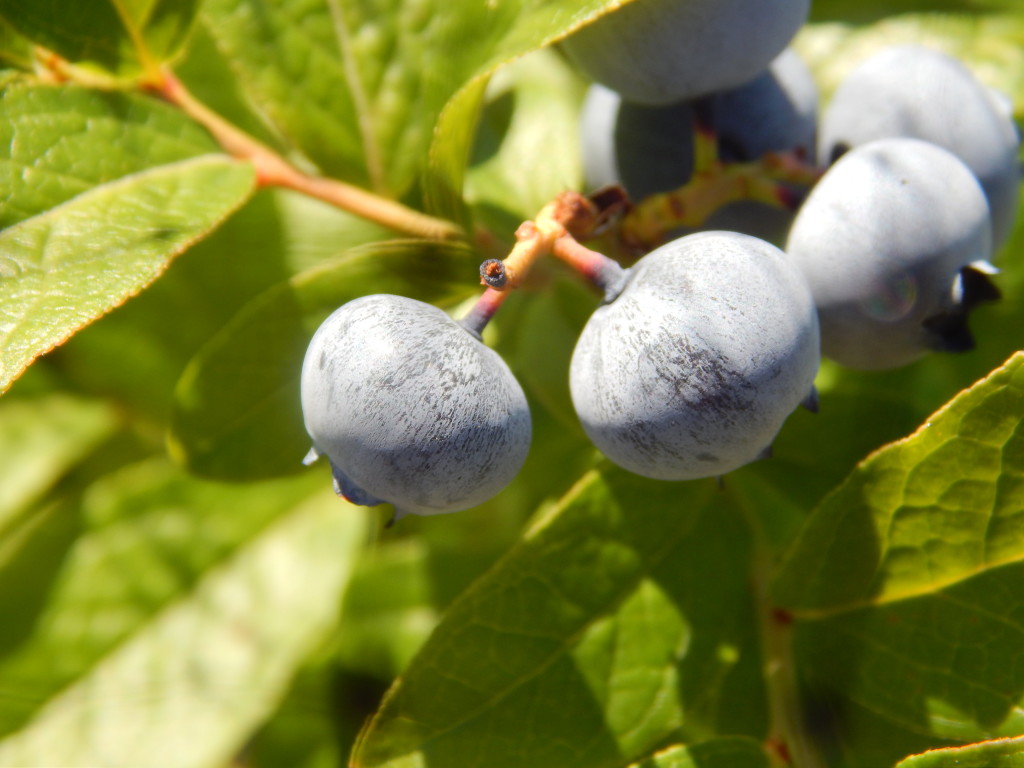 Through the years, I traveled between different paths in search of a healthier life. I figured I could get by with a “pretty-good-kind-of” healthy life. There was always room for beer and chocolate and if in small enough quantities, just about every other unhealthy food choice. My first child changed all that. Not long after her teeth came in, I noticed brown spots: rapid, fast-growing tooth decay. I took her to acupuncture. In our sessions, the acupuncturist talked about diets. It was the first time I’d ever heard of the terms alkaline, acid, and ash in the context of our bodies. He said if my daughter’s body changed to alkaline, the carries couldn’t survive.
Through the years, I traveled between different paths in search of a healthier life. I figured I could get by with a “pretty-good-kind-of” healthy life. There was always room for beer and chocolate and if in small enough quantities, just about every other unhealthy food choice. My first child changed all that. Not long after her teeth came in, I noticed brown spots: rapid, fast-growing tooth decay. I took her to acupuncture. In our sessions, the acupuncturist talked about diets. It was the first time I’d ever heard of the terms alkaline, acid, and ash in the context of our bodies. He said if my daughter’s body changed to alkaline, the carries couldn’t survive.
I went and bought my first juicer – determined to make a difference without the invasive use of surgery. I doubled the amount of organic greens and found creative ways to hide celery, parsley, and kale in smoothies. After a few years, my daughter’s adult teeth came in straight, white, and free of cavities.
Believing my son’s cysts were going to go away amounted to nothing unless I took action. I searched for an alternative doctor, especially one that would implement diet as part of healing. I located a naturopathic doctor more than seven hours from my home. We set up a consultation on the phone. He gave me a list of vitamins and other things that might help. Then, he said one thing, as the acupuncturist did, that made the most sense of all: if the body is in balance, no cyst can live. I got the juicer out again.
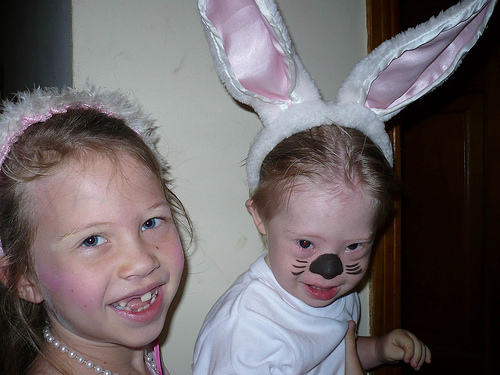 At nine months, I took my son to check on the cyst in an ultrasound. If the cyst grew, there would be reason for concern. If the cyst had stayed the same size or, was smaller, we’d have reason to know something was going right. Since I couldn’t make heads or tails out of an ultrasound, I watched the doctor’s face instead. I held down my son’s tiny penis down with rough, brown paper towels. It was quiet. My son was calm. The doctor had a very blank look on her face. She moved the wand back and forth across his belly. “They’re not there,” she said.
At nine months, I took my son to check on the cyst in an ultrasound. If the cyst grew, there would be reason for concern. If the cyst had stayed the same size or, was smaller, we’d have reason to know something was going right. Since I couldn’t make heads or tails out of an ultrasound, I watched the doctor’s face instead. I held down my son’s tiny penis down with rough, brown paper towels. It was quiet. My son was calm. The doctor had a very blank look on her face. She moved the wand back and forth across his belly. “They’re not there,” she said.
“What?” I said.
“I can’t find the cysts,” she said. “They’re gone.”
Books and information about Down syndrome listed very matter-of-factly what limitations he could have: speech deficiencies, slow to walk, heart problems, digestive difficulties, fine and gross motor skills challenges, crooked teeth, physical abnormalities, lagging in emotional development, to name a few. Although he seemed to have high level of cognitive development, his walking and gross motor skills were very slow to develop. He struggled with a lot of mucus. Smaller nose and ear tubes made it even harder to breathe. At a young age he contracted a case of bronchitis, which put him in the hospital. Balancing the lists of “what ifs” with the reality of the child in front of me is a constant battle in raising my son.
Each health challenge raised the bar. What more could I do? What more could my son do? I installed therapy machines in my garage and converted my living room to an all-out gymnasium. I measured every step as a tiny victory, every green vegetable eaten a step in the right direction. Several times a day, we worked his lungs through laughing, respiratory therapy, (even crying worked out his lungs!) extracted phlegm and pushed his lungs to work harder.
Deciding what is best for me is one thing because I feel the effects when I make questionable food choices or slack off in exercising. Choosing what to give my children is confounding. Getting all those greens into a child is a daunting task. Yet over many trials, spit ups, tummy aches, and dodging food matter thrown at me, my children and I have settled into a healthy, organic diet that seems to satisfy and push of them to thrive. We eat sprouted lentils, avocados, alfalfa sprouts, celery, parsley, cucumbers and other greens for breakfast; we try to drink another super-green juice for lunch and dinner; and I work hard at limiting the sugar in their diet.
Looking back, I can see what a huge blessing, though uncomfortable, challenging, and painful, all the health challenges were. My children are now thriving. My son climbs, plays soccer, runs track, and plays baseball and basketball. My daughter glows and her smile – white and brilliant – shines. The issue of health care never stops. No diet solves everything; no exercise cures it all; I still indulge on less-than-perfectly-healthy foods. I’m no health guru, just a mom with kids that needed a solution.
I know the miracle was also fueled by of those who care for my children and me: family, coaches, and doctors, even the clerk at the health food store. The combined strength, healthy organic food, community and family support, and the tenacity of my children’s spirit make for a powerful cure.
A portion of this essay appeared on Crazysexylife.com.

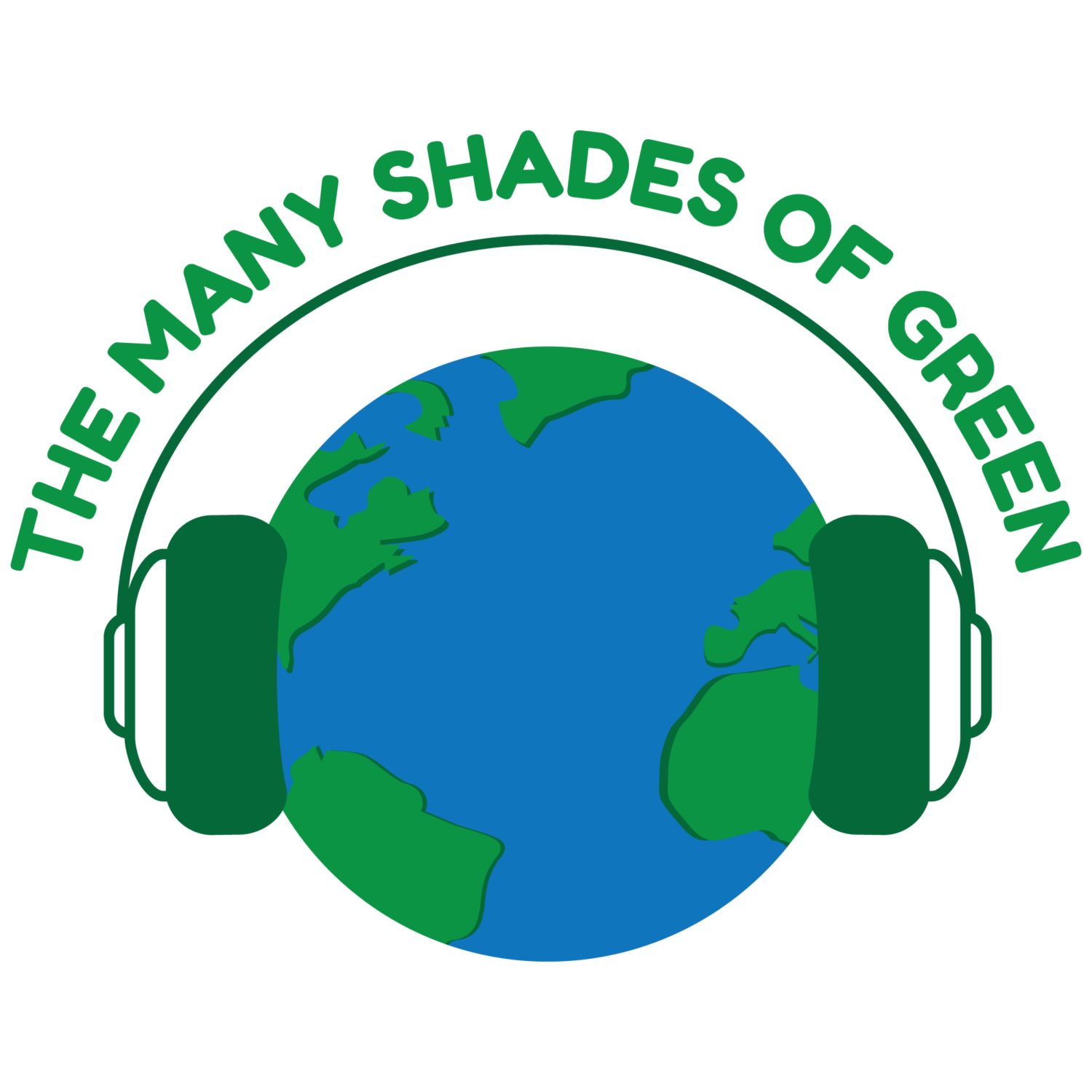
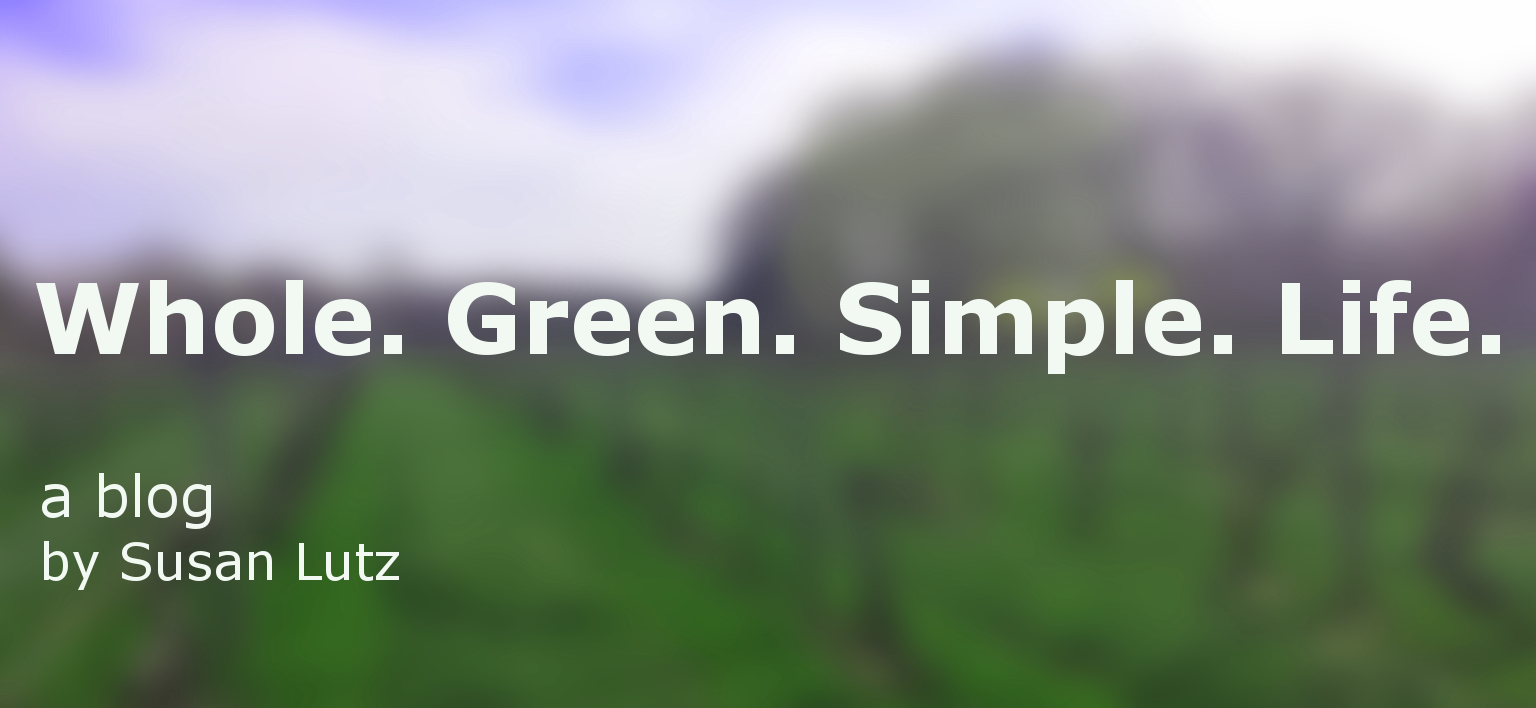
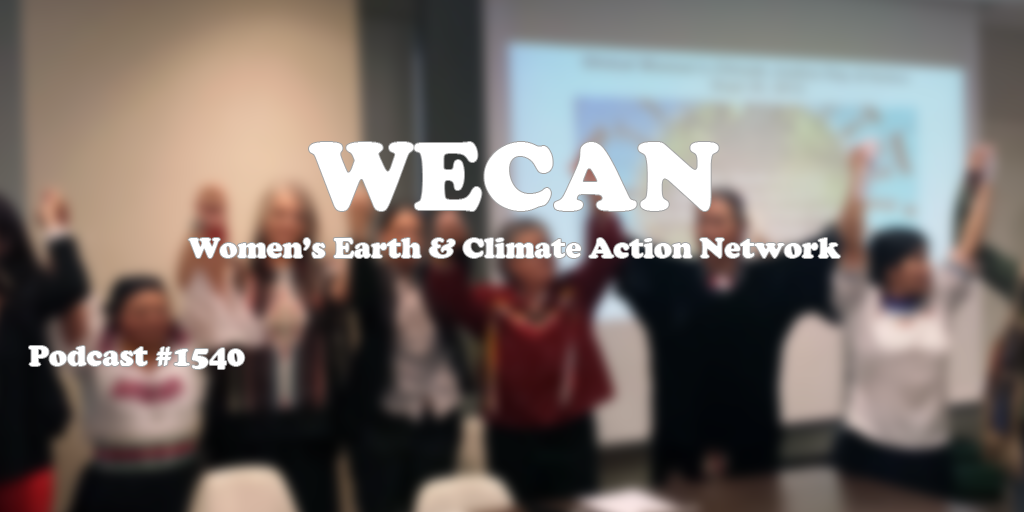
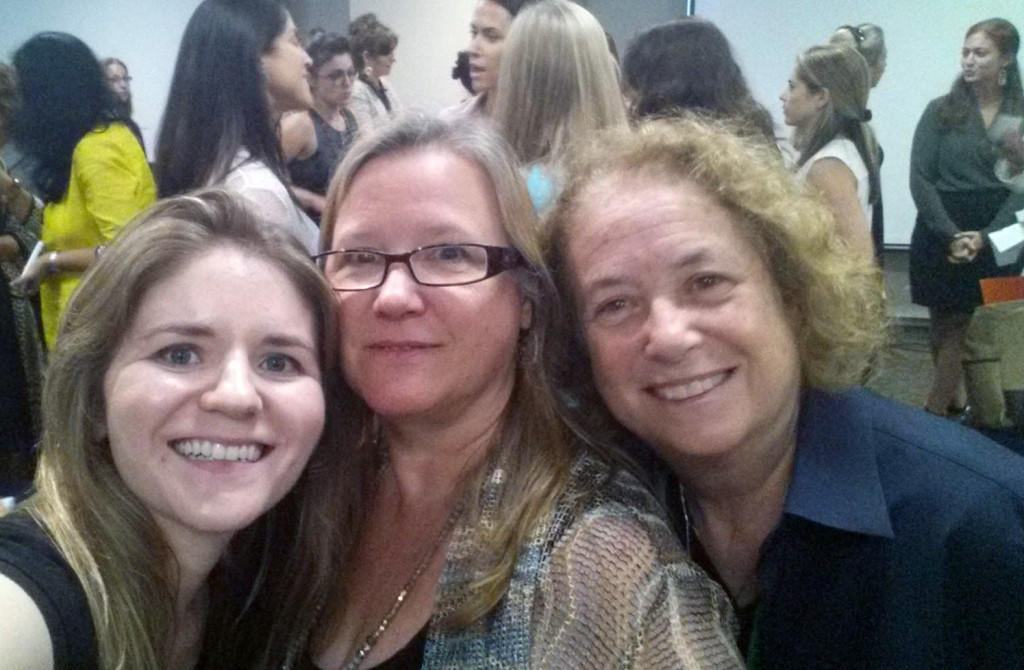 This weeks episode takes us to the Global Women’s Climate Justice Day of Action at the UN, sponsored by the Women’s Earth and Climate Action Network (WECAN). This event was attended by women from over 50 countries. To have such a collection of amazing women in one place, who presented stories of courage and resilience in combating climate change was deeply touching. Women play a key role in adapting solutions to climate change, and it was an honor to speak with WECAN founder Osprey Lake, environmentalist visionary Sally Ranney, as well as Neha Misra founder of Solar Sister, Harriet Shugarman Executive Director of ClimateMama, Executive Director of CELF Katie Ginsberg and student Coreena, and Patricia Gualinga-Montalvo, Indigenous Leader of Ecuador, whose interview was translated by Amazon Watch’s Executive Director Leila Salazar-López. For more information visit
This weeks episode takes us to the Global Women’s Climate Justice Day of Action at the UN, sponsored by the Women’s Earth and Climate Action Network (WECAN). This event was attended by women from over 50 countries. To have such a collection of amazing women in one place, who presented stories of courage and resilience in combating climate change was deeply touching. Women play a key role in adapting solutions to climate change, and it was an honor to speak with WECAN founder Osprey Lake, environmentalist visionary Sally Ranney, as well as Neha Misra founder of Solar Sister, Harriet Shugarman Executive Director of ClimateMama, Executive Director of CELF Katie Ginsberg and student Coreena, and Patricia Gualinga-Montalvo, Indigenous Leader of Ecuador, whose interview was translated by Amazon Watch’s Executive Director Leila Salazar-López. For more information visit 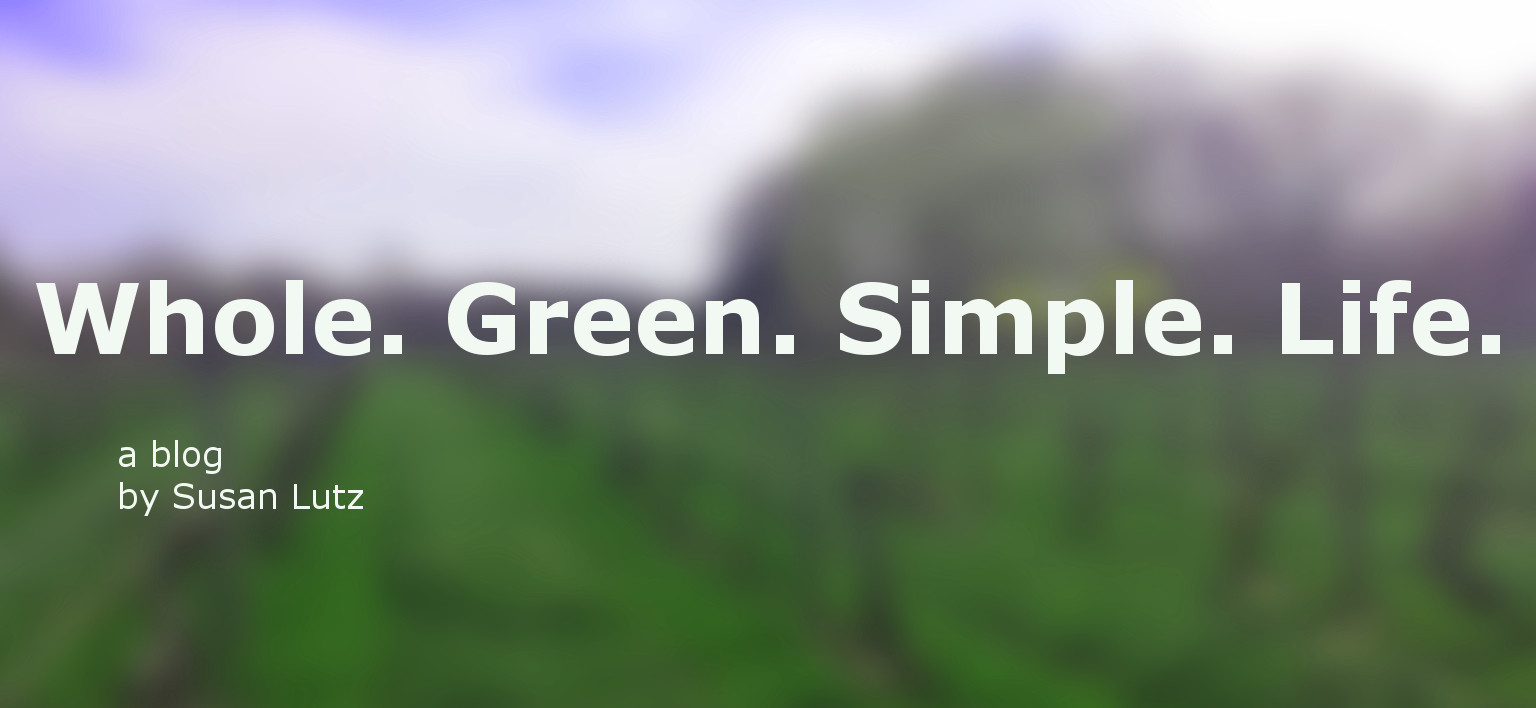
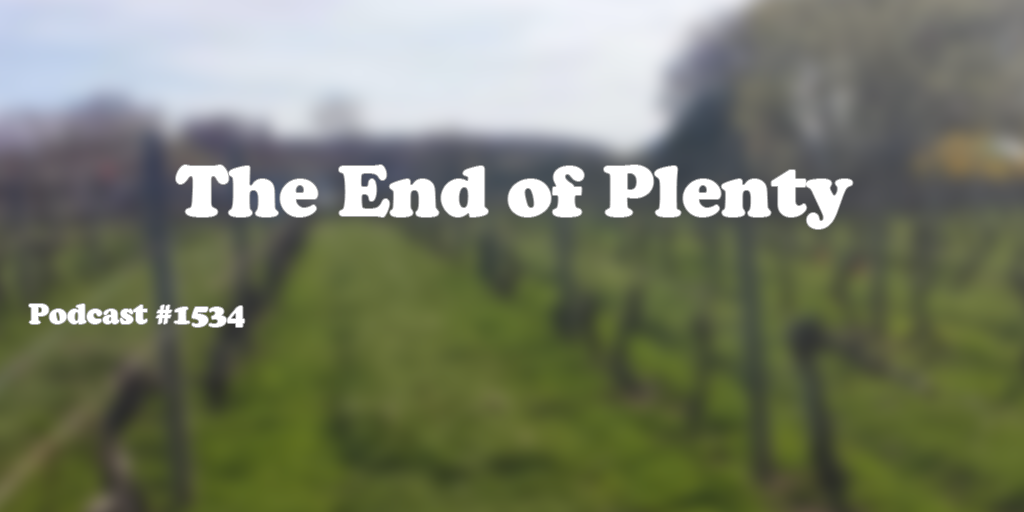
 Can we feed the world without wrecking it? Are we farming ourselves out of food? My guest, Joel K. Bourne Jr. and I delve into those questions on this week’s show. Joel’s new book, THE END OF PLENTY: The Race to Feed a Crowded World, discusses the world food crisis, as it relates to population increase and environmental concerns. Farm land is becoming decimated, as water shortages are spreading globally, thus reducing growth of crops needed to feed the populace. Political unrest and revolutions have occurred in various hot spots around the world, as wheat crops have failed, which has lead to tightening grain supplies. Lives are lost as fights break out over bread. Will 3D printing of food save us? Probably not, but there is hope, as farmers are using innovations in food irrigation, as well as conservation methods to solve some of the problems. A new land ethic must be put into place to feed the world. For more information go to joelkbournejr.com and amazon.com for his book, THE END OF PLENTY.
Can we feed the world without wrecking it? Are we farming ourselves out of food? My guest, Joel K. Bourne Jr. and I delve into those questions on this week’s show. Joel’s new book, THE END OF PLENTY: The Race to Feed a Crowded World, discusses the world food crisis, as it relates to population increase and environmental concerns. Farm land is becoming decimated, as water shortages are spreading globally, thus reducing growth of crops needed to feed the populace. Political unrest and revolutions have occurred in various hot spots around the world, as wheat crops have failed, which has lead to tightening grain supplies. Lives are lost as fights break out over bread. Will 3D printing of food save us? Probably not, but there is hope, as farmers are using innovations in food irrigation, as well as conservation methods to solve some of the problems. A new land ethic must be put into place to feed the world. For more information go to joelkbournejr.com and amazon.com for his book, THE END OF PLENTY. Through the years, I traveled between different paths in search of a healthier life. I figured I could get by with a “pretty-good-kind-of” healthy life. There was always room for beer and chocolate and if in small enough quantities, just about every other unhealthy food choice. My first child changed all that. Not long after her teeth came in, I noticed brown spots: rapid, fast-growing tooth decay. I took her to acupuncture. In our sessions, the acupuncturist talked about diets. It was the first time I’d ever heard of the terms
Through the years, I traveled between different paths in search of a healthier life. I figured I could get by with a “pretty-good-kind-of” healthy life. There was always room for beer and chocolate and if in small enough quantities, just about every other unhealthy food choice. My first child changed all that. Not long after her teeth came in, I noticed brown spots: rapid, fast-growing tooth decay. I took her to acupuncture. In our sessions, the acupuncturist talked about diets. It was the first time I’d ever heard of the terms  At nine months, I took my son to check on the cyst in an ultrasound. If the cyst grew, there would be reason for concern. If the cyst had stayed the same size or, was smaller, we’d have reason to know something was going right. Since I couldn’t make heads or tails out of an ultrasound, I watched the doctor’s face instead. I held down my son’s tiny penis down with rough, brown paper towels. It was quiet. My son was calm. The doctor had a very blank look on her face. She moved the wand back and forth across his belly. “They’re not there,” she said.
At nine months, I took my son to check on the cyst in an ultrasound. If the cyst grew, there would be reason for concern. If the cyst had stayed the same size or, was smaller, we’d have reason to know something was going right. Since I couldn’t make heads or tails out of an ultrasound, I watched the doctor’s face instead. I held down my son’s tiny penis down with rough, brown paper towels. It was quiet. My son was calm. The doctor had a very blank look on her face. She moved the wand back and forth across his belly. “They’re not there,” she said.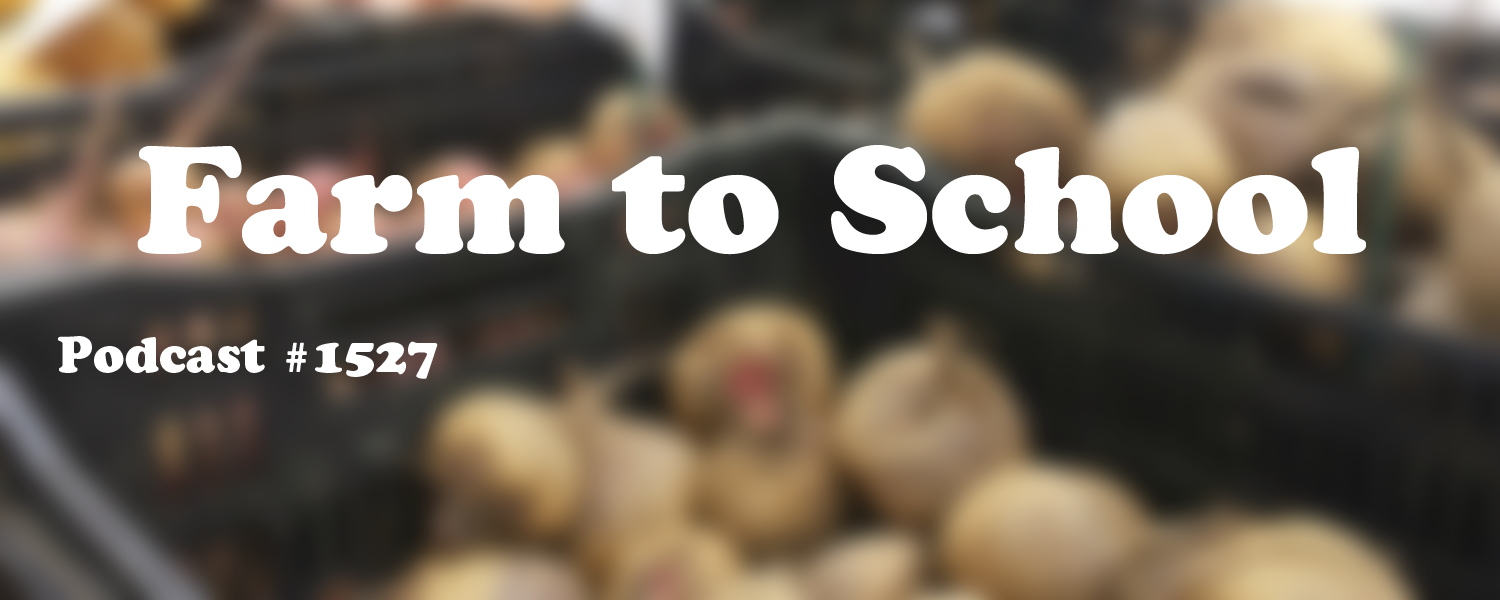
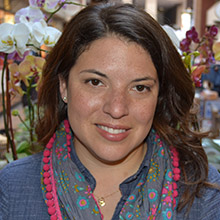 According the the Center for Disease Control and Prevention, childhood obesity has more than doubled in children and quadrupled in adolescents within the past 30 years. Enter the National Farm to School Network, which is working to bring local, fresh foods to school across the U.S., in an effort to reduce obesity, and bring healthy food choices to cafeteria menus. My guest this week is Jaime Lockwood, Development Director at the Farm to School Network, which helps connect local farmers with schools, chefs to cafeterias, and students to gardens. We talk about the importance of the Farm to School Act of 2015, and discuss how chefs inspire healthy eating, environmental awareness, and fitness via
According the the Center for Disease Control and Prevention, childhood obesity has more than doubled in children and quadrupled in adolescents within the past 30 years. Enter the National Farm to School Network, which is working to bring local, fresh foods to school across the U.S., in an effort to reduce obesity, and bring healthy food choices to cafeteria menus. My guest this week is Jaime Lockwood, Development Director at the Farm to School Network, which helps connect local farmers with schools, chefs to cafeterias, and students to gardens. We talk about the importance of the Farm to School Act of 2015, and discuss how chefs inspire healthy eating, environmental awareness, and fitness via 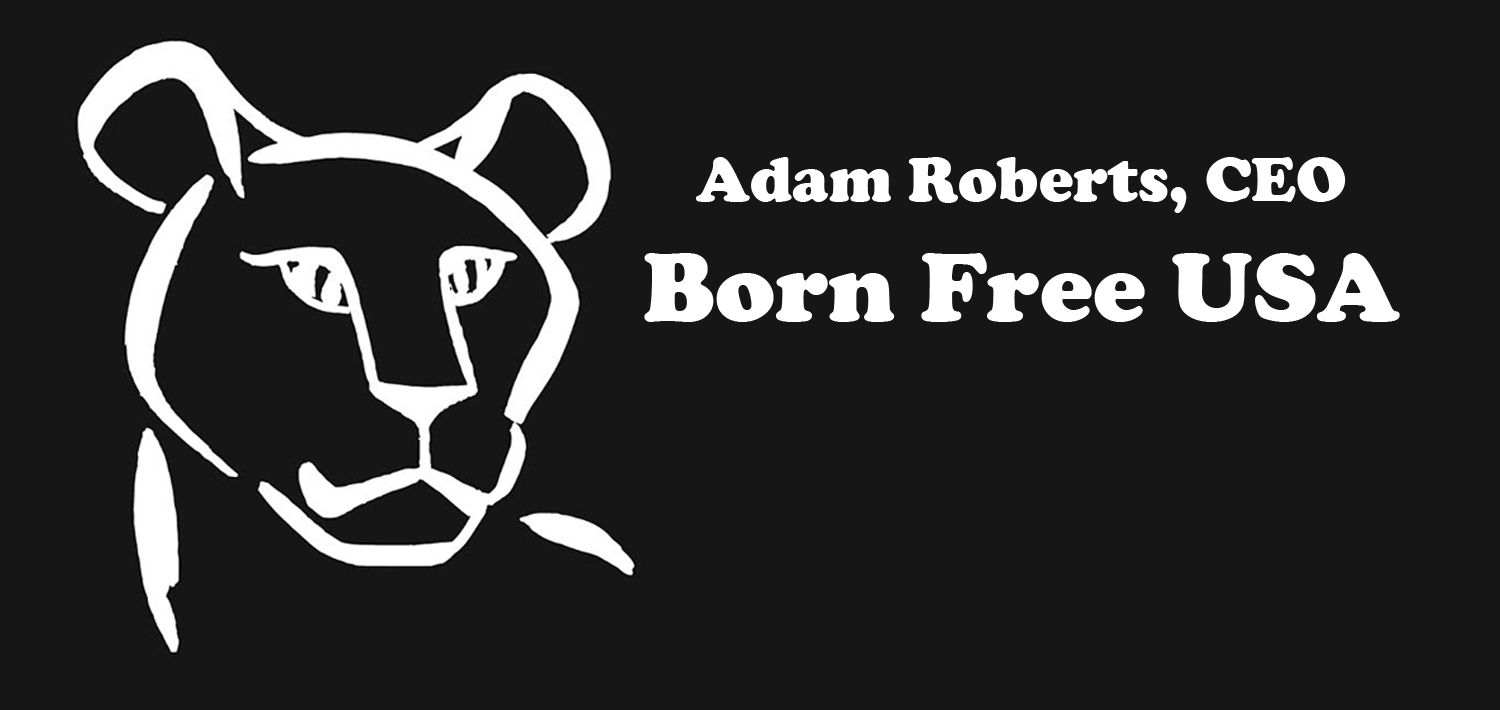
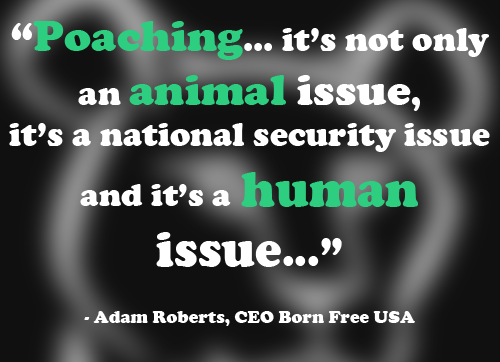 This week’s show takes us to jungles, plains, back lots and road shows to focus on animal welfare and the need for wildlife protection. My guest, Adam Roberts, CEO of the organization Born Free USA, and I discuss the plight of elephants and lions and what is causing them to be endangered. We also talk about the cruelty and neglect of Exotic pets, and the treatment of animal actors in circuses, film and TV. Lions may be sleeping, but we need to ROAR to save them. For more information go to
This week’s show takes us to jungles, plains, back lots and road shows to focus on animal welfare and the need for wildlife protection. My guest, Adam Roberts, CEO of the organization Born Free USA, and I discuss the plight of elephants and lions and what is causing them to be endangered. We also talk about the cruelty and neglect of Exotic pets, and the treatment of animal actors in circuses, film and TV. Lions may be sleeping, but we need to ROAR to save them. For more information go to 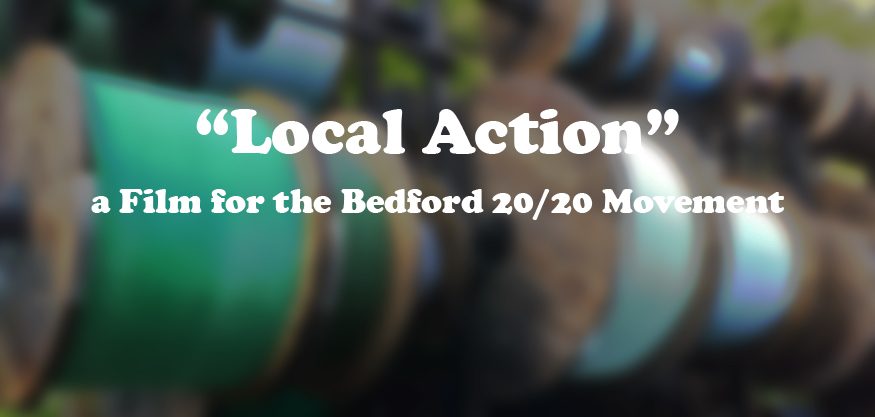
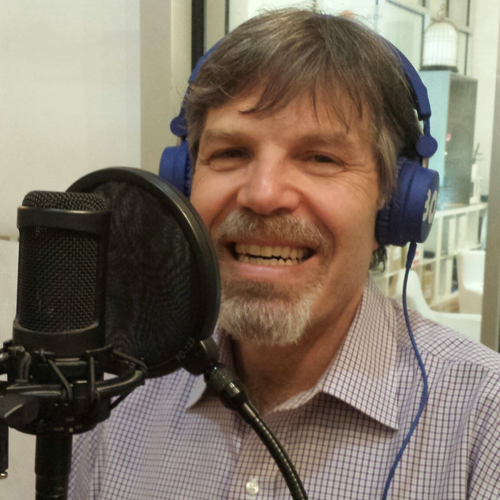 Nick Gutfreund, founder of Long Run Media, is my guest this week, and we discuss how film is a powerful tool to educate and communicate messages, to help promote participation in the eco-movement. He is currently working on a documentary entitled “Local Action,” which focuses on grassroots community groups, and how those groups move to build awareness of environmental and social issues. Local organizations are the change agents who help create solutions for a more sustainable planet. Please visit
Nick Gutfreund, founder of Long Run Media, is my guest this week, and we discuss how film is a powerful tool to educate and communicate messages, to help promote participation in the eco-movement. He is currently working on a documentary entitled “Local Action,” which focuses on grassroots community groups, and how those groups move to build awareness of environmental and social issues. Local organizations are the change agents who help create solutions for a more sustainable planet. Please visit 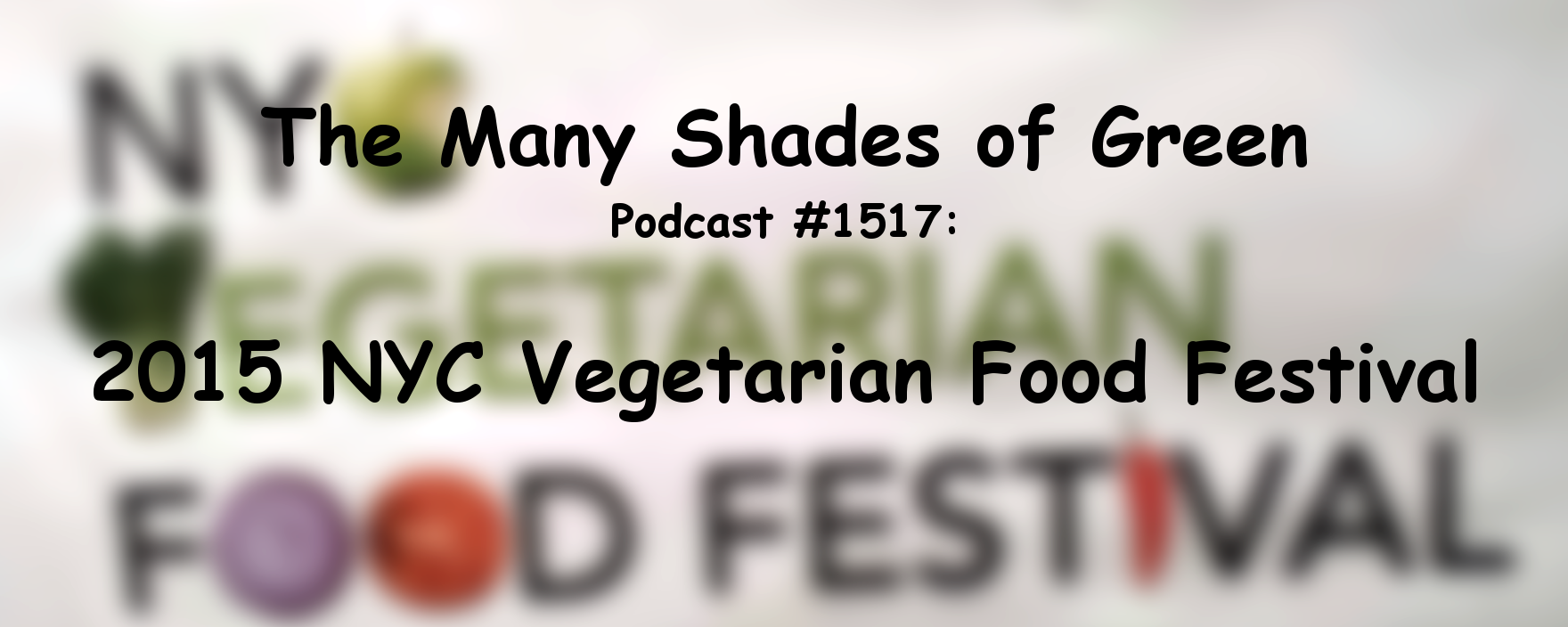
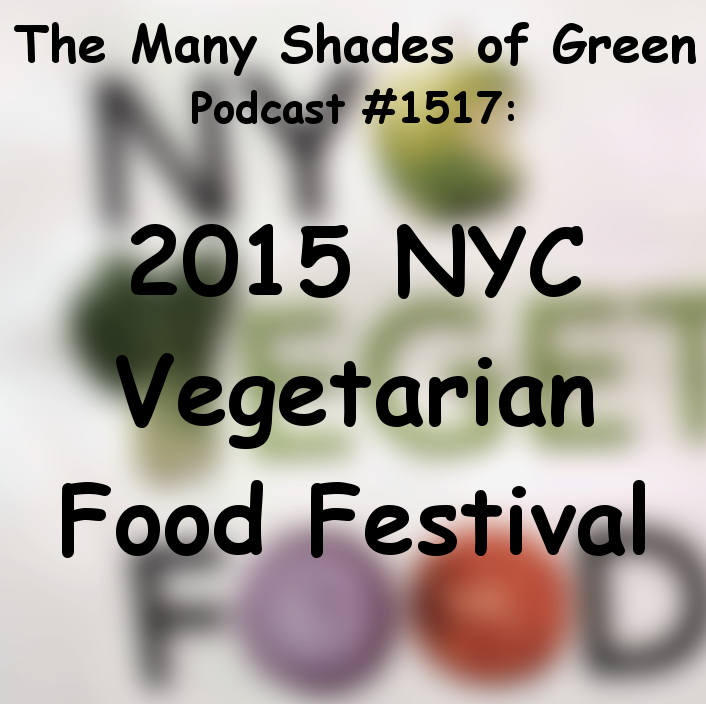 Be Kind to Animals, Don’t Be Cruel, Eat Your Veggies. All these phrases come together on this week’s program, as we celebrate vegetarian cuisine and cruelty free living at the New York City Vegetarian Food Festival. We spoke with Zoe Weil, Co-founder and president of the Institute for Humane Education, Nora Kramer, Founder and Executive Director of YEA (Youth Empowerment Action) Camp, Annie Hauck Lawson, Founder of Brooklyn Mompost, Susan Hargreaves, Founder of Animal Hero Kids, and Isis Phillips, Executive Director of Indy Kids. It was a pleasure speaking with all this dynamic and amazing women, who do so much to make the world a better place. For more information on these organizations go to
Be Kind to Animals, Don’t Be Cruel, Eat Your Veggies. All these phrases come together on this week’s program, as we celebrate vegetarian cuisine and cruelty free living at the New York City Vegetarian Food Festival. We spoke with Zoe Weil, Co-founder and president of the Institute for Humane Education, Nora Kramer, Founder and Executive Director of YEA (Youth Empowerment Action) Camp, Annie Hauck Lawson, Founder of Brooklyn Mompost, Susan Hargreaves, Founder of Animal Hero Kids, and Isis Phillips, Executive Director of Indy Kids. It was a pleasure speaking with all this dynamic and amazing women, who do so much to make the world a better place. For more information on these organizations go to 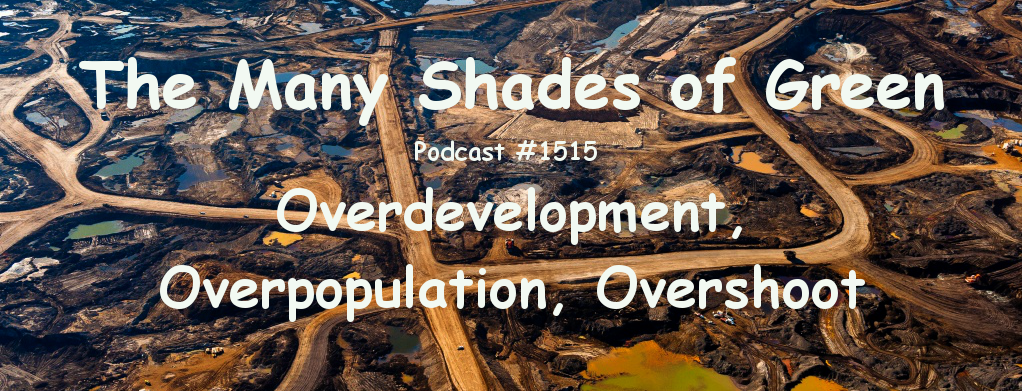
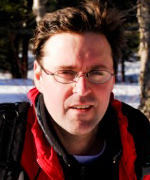 Overdevelopment, Overpopulation, Overshoot – Tom Butler’s new large format coffee table book, tells the story of how population increase, and the rise of the industrial complex, has led to social, economic and environmental problems world wide. The phrase ” a picture’s worth a thousand words” is most evident in the photos taken during this three year journey to expose man’s quest to dominate the planet, and leave sprawl, over growth, disease and destruction in its path. We over indulge, over-plug, and over saturate this beautiful planet, with blatant di
Overdevelopment, Overpopulation, Overshoot – Tom Butler’s new large format coffee table book, tells the story of how population increase, and the rise of the industrial complex, has led to social, economic and environmental problems world wide. The phrase ” a picture’s worth a thousand words” is most evident in the photos taken during this three year journey to expose man’s quest to dominate the planet, and leave sprawl, over growth, disease and destruction in its path. We over indulge, over-plug, and over saturate this beautiful planet, with blatant di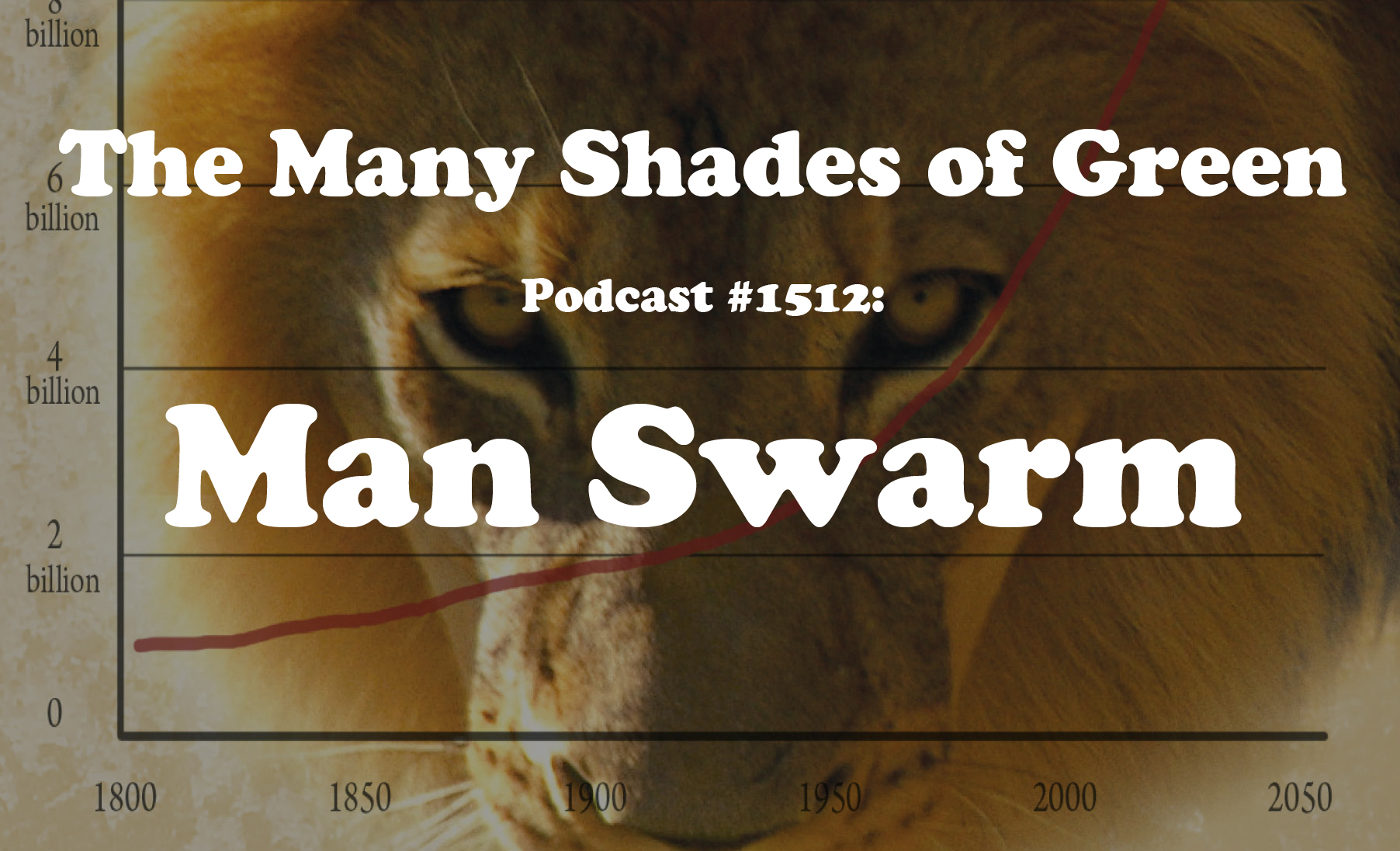
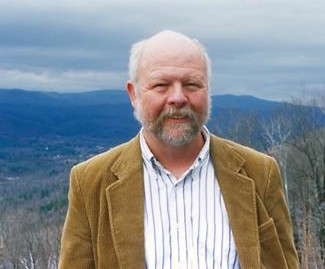 What comes first, the Earth or Earthlings? There are a lot of us humans on the planet, and we have to start thinking about keeping our numbers down. Join me and my guest Dave Foreman, activist, author, and founder of Earth First!, the Wildlands Project, and the Rewilding Institute, as we discuss his latest work, a new revised of edition of his popular title, MAN SWARM: How Overpopulation is Killing the Wild World, which is co-authored with Laura Carroll, author of The Baby Matrix. Population is one factor in the environmental degradation of the planet. Should there be a one child policy in the US or should we stop having babies altogether? What can be done to solve this problem? Tune in to find out. For more information go to
What comes first, the Earth or Earthlings? There are a lot of us humans on the planet, and we have to start thinking about keeping our numbers down. Join me and my guest Dave Foreman, activist, author, and founder of Earth First!, the Wildlands Project, and the Rewilding Institute, as we discuss his latest work, a new revised of edition of his popular title, MAN SWARM: How Overpopulation is Killing the Wild World, which is co-authored with Laura Carroll, author of The Baby Matrix. Population is one factor in the environmental degradation of the planet. Should there be a one child policy in the US or should we stop having babies altogether? What can be done to solve this problem? Tune in to find out. For more information go to